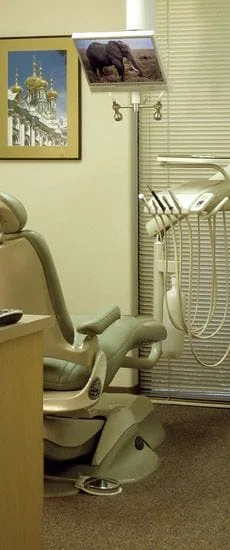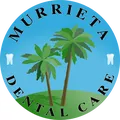
We should expect the unexpected. If an emergency is extreme, then please call 911 or go to the nearest emergency room or urgent care center. Most dental accidents do not require immediate attention.
Typically, if an accident happens after regular business hours and the area doesn't hurt a lot, then you can wait until the next business day.
The following summary list may help you in case of a dental emergency:
Temporary Crown Came Off
Temporary crowns help reduce tooth sensitivity and make a tooth look normal. If a temporary crown comes off, then try to re-cement it. Use the temporary crown cement kit that the office gave you. If you need more cement, then you can purchase it in most stores where toothbrushes are sold. If the tooth doesn't hurt, you don't need to put the temporary back on. Your tooth should be fine.
Permanent Crown Came Off
Permanent crowns don't usually come off. Typically, a crown only comes off if there is a cavity under it, the actual tooth is breaks, the glue fails, or you eat very sticky food. Unless there is a cavity or a break, usually the crown can be recemented. If the tooth doesn't hurt much, then leave the crown off and call the office for an appointment. If you want to try to temporarily re-cement the crown, then you can purchase Temporary Crown Cement in most stores where toothbrushes are sold.
Broken Permanent Crown
Permanent crowns are very strong and rarely break. Usually, the forces required to break a crown are more than what would break a normal tooth. Depending on the amount of crown surface lost, the crown may need to be replaced. Usually the tooth with a broken crown won't hurt, because only the outside portion is affected. However, a jagged crown edge may scrape your cheek or tongue. Call the office for an appointment.
Cold & Biting Sensitivity Following Treatment
Teeth respond differently to treatment. Sometimes after a filling or a crown, a tooth becomes temporarily sensitive to cold or biting. Usually, the sensitivity resolves in a few days. If the issue is extreme or prolonged, then the tooth may need to be evaluated. Call the office for an appointment.
Tooth Ache
Begin by meticulously cleaning around the sore tooth. Using warm salt water, rinse the mouth to displace any food trapped between teeth. UNDER NO CIRCUMSTANCES should you place aspirin on the
aching tooth or on the adjacent gums. In the event of facial swelling, apply a cold compress to the area. For temporary pain relief, acetaminophen or ibuprofen is usually recommended. Call the office for an appointment.
Cut or Bitten Tongue, Lip, or Cheek
Apply ice to any bruised areas. For bleeding, apply firm (but gentle) pressure with sterile gauze or a clean cloth. If the bleeding does not stop with pressure, or if it continues after 15 minutes,
then go to an emergency room. If the bite is painful, yet not severe, rinse with Peroxyl (a dental-grade hydrogen peroxide solution). This can be purchased at most stores where toothbrushes are sold.
Broken Braces or Wires
Call your orthodontist for advice. Remove a broken appliance only if it comes out easily. If it is lodged or painful to remove, then cover any protruding edges with wax, cotton balls, gauze, or chewing gum. DO NOT REMOVE
any wire caught in the gums, cheek, or tongue; see your orthodontist ASAP. Emergency attention is usually not required for loose or broken appliances that cause no discomfort.
Broken Tooth
Rinse the area with warm water. Put a cold compress over the facial area of the injury. Recover any broken tooth fragments. If the tooth is not bleeding or the tooth is not very painful, then the issue can usually be treated on the next business day. Call the office for an appointment.
Knocked Out Permanent Tooth
Recover the tooth, making sure to hold it by the crown (top) and not the root end. Rinse, but do not clean or handle the tooth more than necessary. Reinsert the tooth in the socket and hold
it in place using a clean piece of gauze or cloth. If the tooth cannot be reinserted, then carry it in a cup containing milk or saliva. Call the office immediately. The tooth may not be
savable if it is out of the socket for more than 30 minutes.
Severe Facial Swelling
Severe facial swelling is often a sign of a dental infection. Depending on the cause, you may need antibiotics, root canal therapy, or even an extraction. Call the office or go the emergency room.
Possible Broken Jaw
In the event of jaw injury, tie the mouth closed with a towel, tie, or handkerchief. Go immediately to an emergency room. Our office is not equipped to treat broken jaws.
Bleeding After a Baby Tooth Falls Out
Fold a piece of gauze and place it (tightly) over the bleeding area. Bite down on the gauze for 15 minutes. If bleeding is profuse and prolonged, then call the office. However, it is unlikely
that there will be a problem.
Cold or Canker Sores
These sores usually heal on their own within 10 days. Over-the-counter medications will usually provide temporary relief of the discomfort. If sores persist, then call the office for an appointment.
